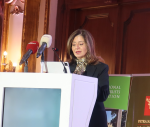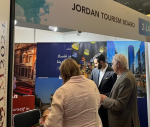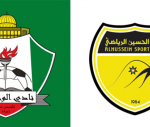You are here
The humanity of science
Feb 11,2018 - Last updated at Feb 11,2018
In his autobiography ‘The Moon’s a Balloon’, actor David Niven paraphrased a Chinese proverb that when the lawns are manicured, the hedges trimmed and the garden is in full bloom, a weed raises its head. Later in the book, he invented a sequel that when the hedges are overgrown and the garden is choked by weeds, somebody comes along with a canister of weed killer.
I was reminded of this sequel as I sat the other day, reflecting with sadness on the state of the world as it sinks in parochialism, populist rhetoric and xenophobia, when a piece of news came to remind me that some things remain universal and they will continue to improve the lives of all humankind.
In this case it was science, or specifically, pharmacology. The news was that, on January 29, the US Food and Drug Administration granted Breakthrough Therapy Designation for Roche’s investigational oral medicine Balovaptan, which has shown the potential to improve social interaction and communication in people with autism spectrum disorder (ASD).
Autism is a lifelong developmental condition with a broad range and varying severity of symptoms, all of which can seriously limit the individual’s social interaction and ability to lead a reasonably independent life.
When my son was diagnosed with autism 18 years ago, the prevailing wisdom was that one in 2,000 children is affected by the syndrome. Later, autism was declared a national epidemic in the US, and now the Autism and Developmental Disabilities Monitoring reports that 1 in 68 children in the US has been identified with ASD. I could not find Jordanian statistics, but they probably are in the same range.
Our journey with autism has been a great eye-opener. Many treatments were recommended to us, which included concentrated oxygen, a diet of dates and camel milk, making my wife cover her hair in public, and one charlatan claimed to administer ancient Indian medicine to peddle sugar pills for a lot of money. But so far, there has been no pharmacological treatment for autism.
We also discovered a regrettable trend in the Middle East regarding care for autism. There are many centres with varying levels of competence for children below 15, when they are still cute and manageable, and their parents still hope that they may snap out of it when they grow up. After 15, there are few centres and they are mostly full-board institutes that take the unfortunate children off their parents’ hands.
Conversely, we happily discovered many individual Jordanians who are highly specialised, ethical, and dedicated, whose quality services attract children from Gulf countries as well as Jordan.
The development of Balovaptan may prove as far reaching as the introduction of the polio vaccine, developed by Jonas Salk in 1955, when polio was the most frightening public health problem in the world. Interestingly, Salk refused to patent his vaccine. When asked who owned the patent to it, he said, "Well, the people I would say. There is no patent. Could you patent the sun?"












